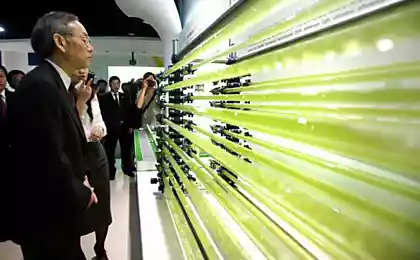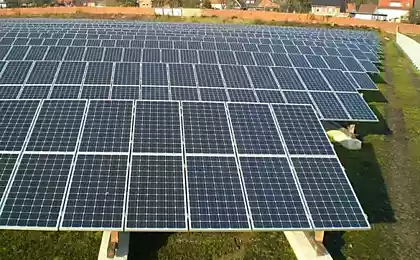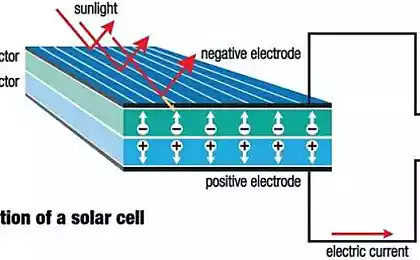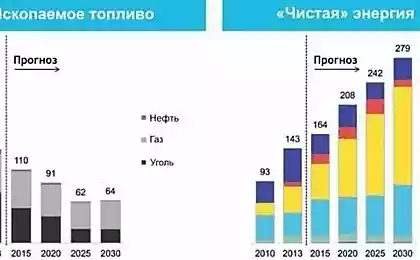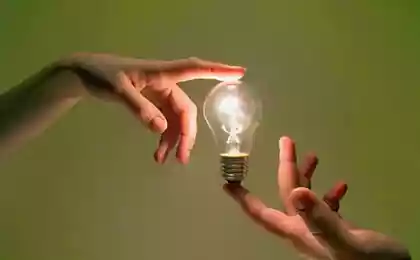440
The coming era of unlimited – and free – clean energy
In the 1980's, leading experts were very skeptical in relation to cell phones. For example, experts of McKinsey & Company noted that the phone is heavy, the battery is not long enough, the action area is variable, and all at extortionate cost. They predicted that in 20 years the total market volume will reach around 900 million units and recommended AT & T to leave the game. It is now clear that McKinsey was wrong. In 2000 used more than 100 million cell phones; now they number in the billions. Prices have fallen so much that even poor people in the world can afford a cell phone.
Caption image: the World is ready for active use of solar energy
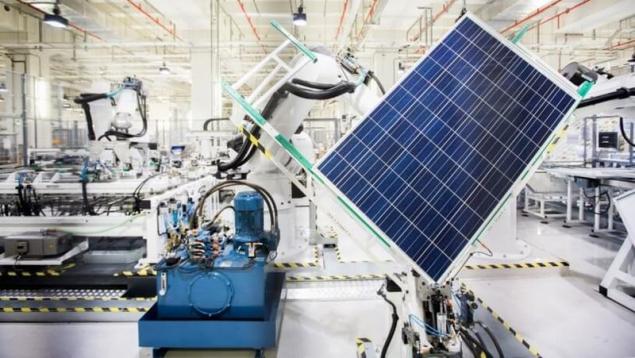
Now the experts say the same thing about solar energy. They note that after decades of research, solar energy provides barely one percent of global demand. In their opinion, solar energy is inefficient and unreliable, the necessary equipment is too expensive, with the result that the industry can not do without state subsidies. But they are wrong. Solar energy will become as ubiquitous as cell phones.
Futurist ray Kurzweil notes that the scale of use of solar energy has doubled every two years over the past 30 years, while costs fell. In his opinion, will need only six doublings – that is, less than 14 years – to achieve 100 percent of today's energy needs. Energy consumption will increase, so that goal shifted. But, according to Kurzweil's calculations, less than 20 years, inexpensive renewable sources will provide more energy than the world needs. But even then, we will use only a ten-thousandth of the sunlight that falls on the Ground.
In such territories as Germany, Spain, Portugal, Australia, southwest USA, the contribution of solar energy for domestic use has already reached "grid parity" with average electricity prices for the population. In other words, in the long run, installing solar panels will cost no more than buying electricity from utility companies. Only in the last five years the price of solar panels fell by 75 percent. They will fall further as technologies improve their production and economies of scale. By 2020 almost all world's solar energy will be able to compete on price with energy generated from fossil fuels, without subsidies. In the next decade it will be cheaper than their hydrocarbon alternatives.
Rapidly developing solar energy. There are also technologies to harness the power of wind, biomass, tides. Research teams worldwide are working on improving the efficiency and effectiveness of these projects. The cost of wind energy, for example, also fell sharply, having the opportunity to compete with the price of energy generated by new coal-fired power plants in the United States. This is, without doubt, making solar power a worthy opponent, and advances in various technologies will accelerate the progress of the case.
Despite the skepticism and criticism of experts, there is little doubt that we are moving into an era of unlimited and almost free clean energy, that will have profound consequences.
First, will fail of all sectors associated with hydrocarbon fuels ranging from utilities, which will experience lower demand, and then it will go bankrupt. Some of them already see the writing on the wall". Smart learn solar power and wind power, others strive at any cost to push the termination of its use. Suffice it to recall, as stakeholders in Oklahoma persuaded lawmakers to approve a surcharge on solar installations. In Arizona some of the success achieved by the group supported by the Koch brothers, having achieved the introduction of an additional charge of $ 5 per month. Similar events occur in other States. However, this struggle is hopeless, because the changes are not limited to the United States. In countries such as Germany, Japan and China, are taking significant efforts to promote clean energy. Solar installations still need to be supplemented by other power sources at a time when the sun doesn't Shine, but storage technologies energy so will improve over the next two decades that the people will no longer depend on utility companies. From the discussion develop incentives for the use of clean energy will move on to talk about subsidies for utility companies so they can continue their activities.
The environment will certainly benefit from the termination of the use of fossil fuels; push get and many sectors of the economy. For example, electric cars in operation will be cheaper than those that employ combustion of hydrocarbon fuels. We will be able to create an unlimited amount of pure water by boiling and subsequent condensation of ocean water. Having cheap energy, farmers can grow vegetables and fruits hydroponic method (soilless method of growing plants; approx.mixednews) on vertical farms located near consumers without having the use of pesticides. The world will have the energy needed to heat homes and 3D printing of everyday products.
Specifically, we are moving into an era of prosperity, which he wrote Peter Diamandis. In the very period when the basic needs of humanity are met through advanced technology. The task of people will be to share this abundance with each other, whereby technology will make the world a better place. published
P. S. And remember, only by changing their consumption — together we change the world! © Join us at Facebook , Vkontakte, Odnoklassniki
Source: gearmix.ru/archives/23424
Caption image: the World is ready for active use of solar energy

Now the experts say the same thing about solar energy. They note that after decades of research, solar energy provides barely one percent of global demand. In their opinion, solar energy is inefficient and unreliable, the necessary equipment is too expensive, with the result that the industry can not do without state subsidies. But they are wrong. Solar energy will become as ubiquitous as cell phones.
Futurist ray Kurzweil notes that the scale of use of solar energy has doubled every two years over the past 30 years, while costs fell. In his opinion, will need only six doublings – that is, less than 14 years – to achieve 100 percent of today's energy needs. Energy consumption will increase, so that goal shifted. But, according to Kurzweil's calculations, less than 20 years, inexpensive renewable sources will provide more energy than the world needs. But even then, we will use only a ten-thousandth of the sunlight that falls on the Ground.
In such territories as Germany, Spain, Portugal, Australia, southwest USA, the contribution of solar energy for domestic use has already reached "grid parity" with average electricity prices for the population. In other words, in the long run, installing solar panels will cost no more than buying electricity from utility companies. Only in the last five years the price of solar panels fell by 75 percent. They will fall further as technologies improve their production and economies of scale. By 2020 almost all world's solar energy will be able to compete on price with energy generated from fossil fuels, without subsidies. In the next decade it will be cheaper than their hydrocarbon alternatives.
Rapidly developing solar energy. There are also technologies to harness the power of wind, biomass, tides. Research teams worldwide are working on improving the efficiency and effectiveness of these projects. The cost of wind energy, for example, also fell sharply, having the opportunity to compete with the price of energy generated by new coal-fired power plants in the United States. This is, without doubt, making solar power a worthy opponent, and advances in various technologies will accelerate the progress of the case.
Despite the skepticism and criticism of experts, there is little doubt that we are moving into an era of unlimited and almost free clean energy, that will have profound consequences.
First, will fail of all sectors associated with hydrocarbon fuels ranging from utilities, which will experience lower demand, and then it will go bankrupt. Some of them already see the writing on the wall". Smart learn solar power and wind power, others strive at any cost to push the termination of its use. Suffice it to recall, as stakeholders in Oklahoma persuaded lawmakers to approve a surcharge on solar installations. In Arizona some of the success achieved by the group supported by the Koch brothers, having achieved the introduction of an additional charge of $ 5 per month. Similar events occur in other States. However, this struggle is hopeless, because the changes are not limited to the United States. In countries such as Germany, Japan and China, are taking significant efforts to promote clean energy. Solar installations still need to be supplemented by other power sources at a time when the sun doesn't Shine, but storage technologies energy so will improve over the next two decades that the people will no longer depend on utility companies. From the discussion develop incentives for the use of clean energy will move on to talk about subsidies for utility companies so they can continue their activities.
The environment will certainly benefit from the termination of the use of fossil fuels; push get and many sectors of the economy. For example, electric cars in operation will be cheaper than those that employ combustion of hydrocarbon fuels. We will be able to create an unlimited amount of pure water by boiling and subsequent condensation of ocean water. Having cheap energy, farmers can grow vegetables and fruits hydroponic method (soilless method of growing plants; approx.mixednews) on vertical farms located near consumers without having the use of pesticides. The world will have the energy needed to heat homes and 3D printing of everyday products.
Specifically, we are moving into an era of prosperity, which he wrote Peter Diamandis. In the very period when the basic needs of humanity are met through advanced technology. The task of people will be to share this abundance with each other, whereby technology will make the world a better place. published
P. S. And remember, only by changing their consumption — together we change the world! © Join us at Facebook , Vkontakte, Odnoklassniki
Source: gearmix.ru/archives/23424
Facebook artificially slow down the Internet speed for their employees
"Getmobile": ecology and economy?




